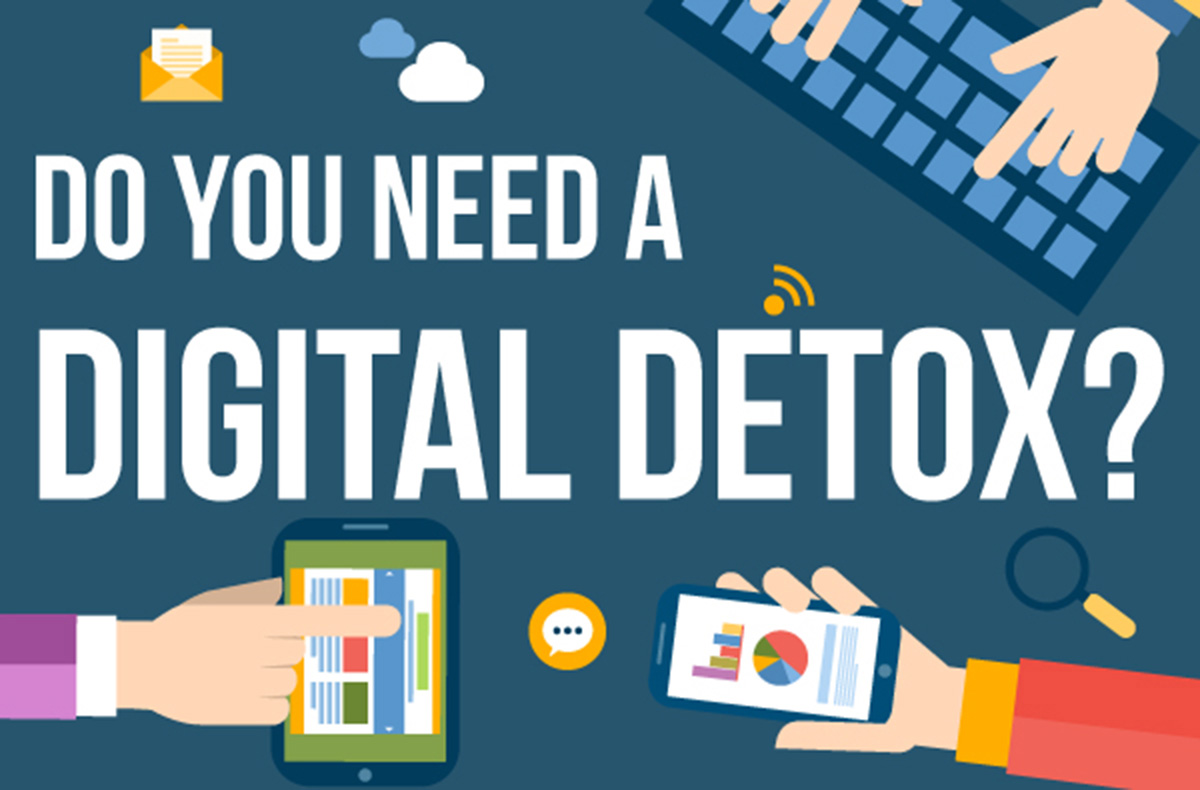Table of Contents
A what?
A digital detox. A few days or a week without any gadgets at all: no iPhone, no internet, no laptop. Many woodlands are now offering family digital detoxes for those who think they might "fall off the wagon" at home.
The Moroccan Experiment
In 2015, Kate Unsworth handpicked 35 CEOs and entrepreneurs and took them on a four-day digital detox in the Moroccan desert, along with five neuroscientists, to observe what happened. Here's what they noticed:

Better Friendships
After three days with their iPhones surgically amputated, people started to walk straighter. This gave them a more positive energy and a friendlier outlook when they entered a room. Without their iPhones there, constantly distracting them with pinging instant messages, they made more eye-contact with the other participants, had more focused conversations and so started to form closer, better friendships.
Better conversation
Google is a very useful tool. But it has killed trivia games, where one person has a question and so more people are pulled in leading to lively talk and inside jokes as everyone tries to find the answer. Now, if we want an answer, we solitarily Google it. Without their portable search device, participants started to have bonding conversations.
As Unsworth says:
"These are the conversations that really form bonds between people...You gain insight into the way someone's mind works, and it is not typically a conversation anyone has had before, so it is engaging and memorable."
READ Insomnia, Stress and Immune System
Better sleep
Without those blue screens in their rooms, keeping them fizzing like electrical wires all night long, the participants started getting better-quality sleep, feeling more rested during the day.
Improved Memory
After only a few days, the participants were able to remember obscure details of the other participants' lives. The five neuroscientists believed this was because, by being more present in conversation, they were able to store and access new information more easily. When distracted by technology, our brains ignore details that appear insignificant, like your new acquaintance's mother's name. However, these details do matter. They show other people that we care and help us bond.
READ How to Improve Memory: 10 Simple Tips
Permanent Change
One surprising thing the neuroscientists found was how a few days away from the screen and present in their own lives helped people realise what was important. Some decided to make big changes in their lives, in relationships, or careers. Freeing people from distractions didn't only help people realise what mattered, it also helped them feel they had the ability to make long-term change.
Other Benefits of Digital Detox
These changes weren't specifically noticed in Morocco, but have been found in people doing a digital detox:
- More peacefulness: Without constant distractions, you can relax, take deeper breaths. You're not constantly jumping to check the next "thing". You can be in the moment.
- Not always on call: Think about it, if the second anyone sends you a message, you reply (even at midnight on Sunday), what does that teach them? That you're always on call, and available for evermore demands. A digital detox allows you to decide the days and times that it suits you to respond, enabling you to find a healthier work-life balance.
- It could increase your productivity: Some people swear by a regular digital detox as a way to boost their energy levels in time for Monday morning. Taking a total break could jump-start your ideas so you return refreshed and revitalised the following week.
- It could improve your health: We've all heard of conditions like "text neck" and "Blackberry thumb". Spending less time on the iPhone could improve these conditions.
READ Can Mindfulness Meditation Cause You Emotional Harm?
When you come back
Currently, the average adult in the UK spends 25 hours a week online (almost triple the 9 hours we spent online a decade ago). When you return from your detox, try to be mindful of how you use the internet. Try not spending hours Pinning pictures of cute kittens because they're there. Try not browsing celebrity Twitter feeds in which you have only a passing interest. Instead, try using your devices only as you really need them, and to have one day a week when you don't use them at all (except in a genuine emergency)
Considering how we can positively use devices, and being aware of their potential downfalls, may be better than having a long-term blanket "no device" policy.
Getting the Balance
While screens are helpful, it's important to get the balance right: getting your work done, and still finding time to take care of our real friends, and to enjoy hobbies.
And that's where a digital detox can come in. Because we all need time to breathe.
- www.abc.net.au/news/2014-01-27/screen-addiction-experts-raise-concerns/5221278
- bits.blogs.nytimes.com/2014/02/09/for-a-restful-night-make-your-smartphone-sleep-on-the-couch/?_r=1
- www.cnbc.com/2015/10/15/social-media-making-millennials-less-social-study.html
- ns.umich.edu/new/releases/21517-you-re-so-vain-u-m-study-links-social-media-and-narcissism
- www.news.com.au/lifestyle/parenting/kids/uk-psychiatrist-believes-the-high-rates-of-technology-use-are-causing-kids-to-show-signs-of-autism/news-story/825d263047a8fb5d854f238e4ca5b804
- www.fastcompany.com/3049138/most-creative-people/what-really-happens-to-your-brain-and-body-during-a-digital-detox
- www.theguardian.com/commentisfree/2016/aug/05/digital-detox-using-internet-mindfully
- www.huffingtonpost.com/lori-osterberg/digital-detox_b_8361700.html
- www.huffingtonpost.com/2014/03/07/what-to-expect-from-your-_0_n_4899237.html
- www.webmd.com/pain-management/news/20141124/text-neck
- Photo courtesy of mikecogh: www.flickr.com/photos/mikecogh/17971390975/
- Photo courtesy of
- Infographic by SteadyHealth.com
- Infographic by SteadyHealth.com
- Infographic by SteadyHealth.com

